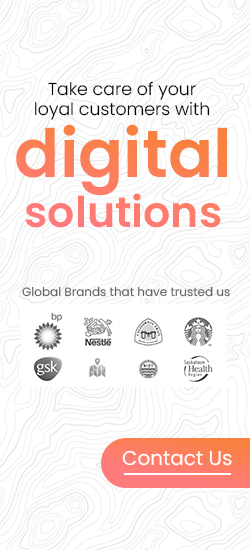TABLE OF CONTENT
AI workflow automation is currently revolutionizing businesses of all sizes and industries. This powerful shift is rapidly reshaping how enterprises operate, boosting productivity and ensuring long-term efficiency. In this blog, we'll explore the growing impact of AI workflow automation on strategic decision-making and its potential to transform your business.
What is AI Workflow Automation?
AI Workflow Automation refers to the integration of artificial intelligence (AI) and machine learning into various business processes to streamline and optimize operations. It involves automating repetitive and rule-based tasks that were traditionally carried out by humans. This technology not only accelerates task execution but also minimizes errors, leading to enhanced efficiency and productivity. AI workflow automation can be applied across various industries, from customer service and finance to manufacturing and healthcare. It involves the use of algorithms and data analysis to make informed decisions and adapt to changing circumstances, ultimately revolutionizing how businesses operate and manage their workflows.
Utilizing AI Automation for Workflow Optimization and Efficiency
Artificial intelligence workflow automation enhances and simplifies traditional manual business processes. This involves encoding more tasks into AI-driven systems for autonomous execution. The COVID-19 pandemic accelerated the adoption of AI workflow automation as businesses faced a survival crisis, forcing them to optimize and manage workflows swiftly.
Now, a year later, AI-powered automated workflows have become an invaluable asset for growth. They simplify and improve existing processes, with data accuracy and efficiency being crucial. To handle the vast amount of data available online and offline, AI and machine learning have become the primary solutions for automated data management and workflow optimization.
Simplify Service Desk Operations by Automating Repetitive Manual Tasks
Long before the digital age and continuing to this day, it has been clear that repetitive manual tasks hinder competitiveness, agility, accurate forecasting, and growth. The push to streamline processes began even before the Industrial Revolution. Utilizing mass data for automation has been essential for survival, productivity, and growth. With digital data handling, new opportunities arose for manipulating information in various ways. Today, these agile workflows can quickly adapt to unexpected changes and increasing demands, enhancing efficiency and productivity. AI Workflow Automation can boost user productivity by up to tenfold.
What is an AI Workflow Orchestration Tool?
An AI Workflow Orchestration Tool is like a digital conductor for businesses. It's a software that uses AI and machine learning to help design, automate, and manage complex workflows. These tools are all about simplifying things. They take care of repetitive, manual tasks and use AI to streamline operations. They can make decisions based on data in real-time, adapt to changing conditions, and allocate resources efficiently.
Some important features of these tools include workflow design, scheduling tasks, handling errors, and monitoring progress. By using an AI Workflow Orchestration Tool, businesses can boost productivity, cut operational costs, make better decisions, and ensure they're following established processes and standards.
Advantages of Using a Workflow Orchestration Tool
AI Workflow Orchestration simplifies processes, enabling users to perform tasks efficiently and access information autonomously. With the help of AI, users no longer need to engage in prolonged conversations with service agents, allowing them to focus on more valuable tasks. Here are some of the advantages of using a workflow orchestration tool:
Efficient Task Execution:
AI Workflow Orchestration simplifies and streamlines tasks, allowing users to complete actions and access information autonomously.
Reduced Dependence on Service Agents:
With the assistance of AI, users no longer need to engage in extended conversations with service agents, freeing up time for more meaningful tasks.
Error Reduction:
AI Workflow Orchestration addresses the error-prone nature of traditional enterprise workflows, replacing human involvement with AI-driven solutions, which offer both speed and accuracy.
Enhanced Data Analysis:
The AI-driven solution continuously monitors applications, providing detailed reports and unique insights across the organization. This data can be used to track ROI, enhance transparency, and identify areas for further automation.
Process Improvement:
Organizations benefit from improved processes, user experience, and employee engagement, all while reducing costs.
ROI Enhancement:
AI Workflow Orchestration delivers a substantial return on investment by reducing errors, increasing service agent productivity, and expediting ticket resolution.
Advancements in AI:
The benefits of AI Workflow Orchestration may seem remarkable, but AI technology is making significant strides across various industries. Continuous progress in AI development and support systems is evident in our daily lives, highlighting its transformative impact.
Disadvantages of Using a Workflow Orchestration Tool
Despite its advantages, AI Workflow Orchestration has its drawbacks. Here are four disadvantages to consider:
Complex Implementation:
Setting up AI Workflow Orchestration can be intricate and time-consuming.
Initial Costs:
Implementation and integration of AI systems can be costly, potentially posing a financial challenge for some organizations.
Dependency on Data Quality:
AI systems heavily rely on data quality, making inaccuracies in data sources a significant concern.
Limited Decision-Making:
While AI can automate tasks, it may struggle with complex decision-making, requiring human intervention in certain scenarios.
Conclusion
AI Workflow Automation is a transformative force that has rapidly transformed businesses across diverse industries. It's a fundamental shift in the way enterprises operate. By integrating artificial intelligence and machine learning into their processes, organizations can streamline operations, improve efficiency, and boost productivity. The COVID-19 pandemic only accelerated the adoption of AI workflow automation, highlighting its critical role in ensuring business resilience and success. As we look ahead, the potential for AI workflow automation is vast.
W2S Solutions, a mobile app development company, utilizes AI to create intuitive, efficient, and user-friendly applications that meet the evolving needs of businesses and consumers alike. The journey towards harnessing the power of AI workflow automation is ongoing, and it promises to continue shaping the future of enterprise operations.


